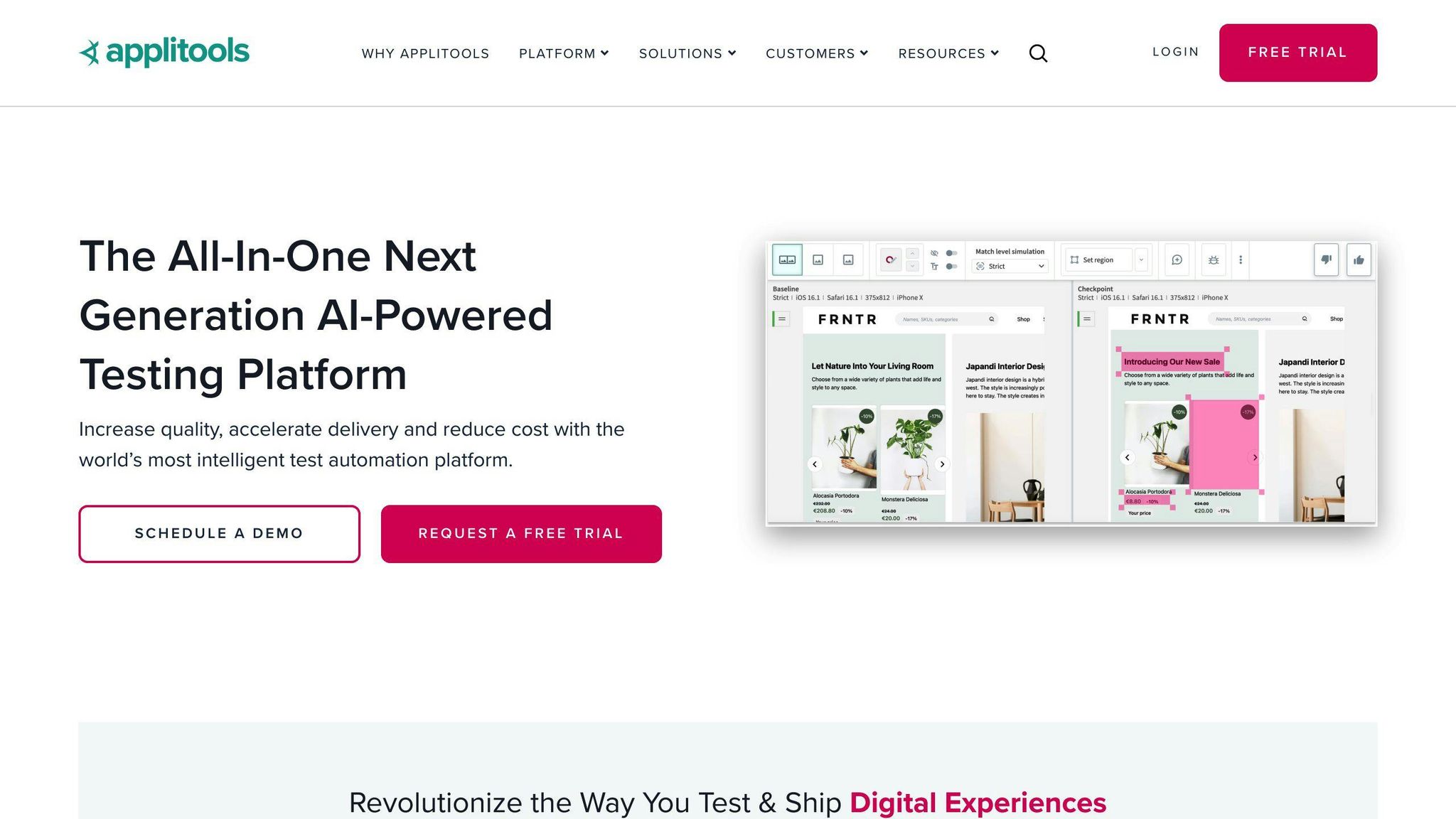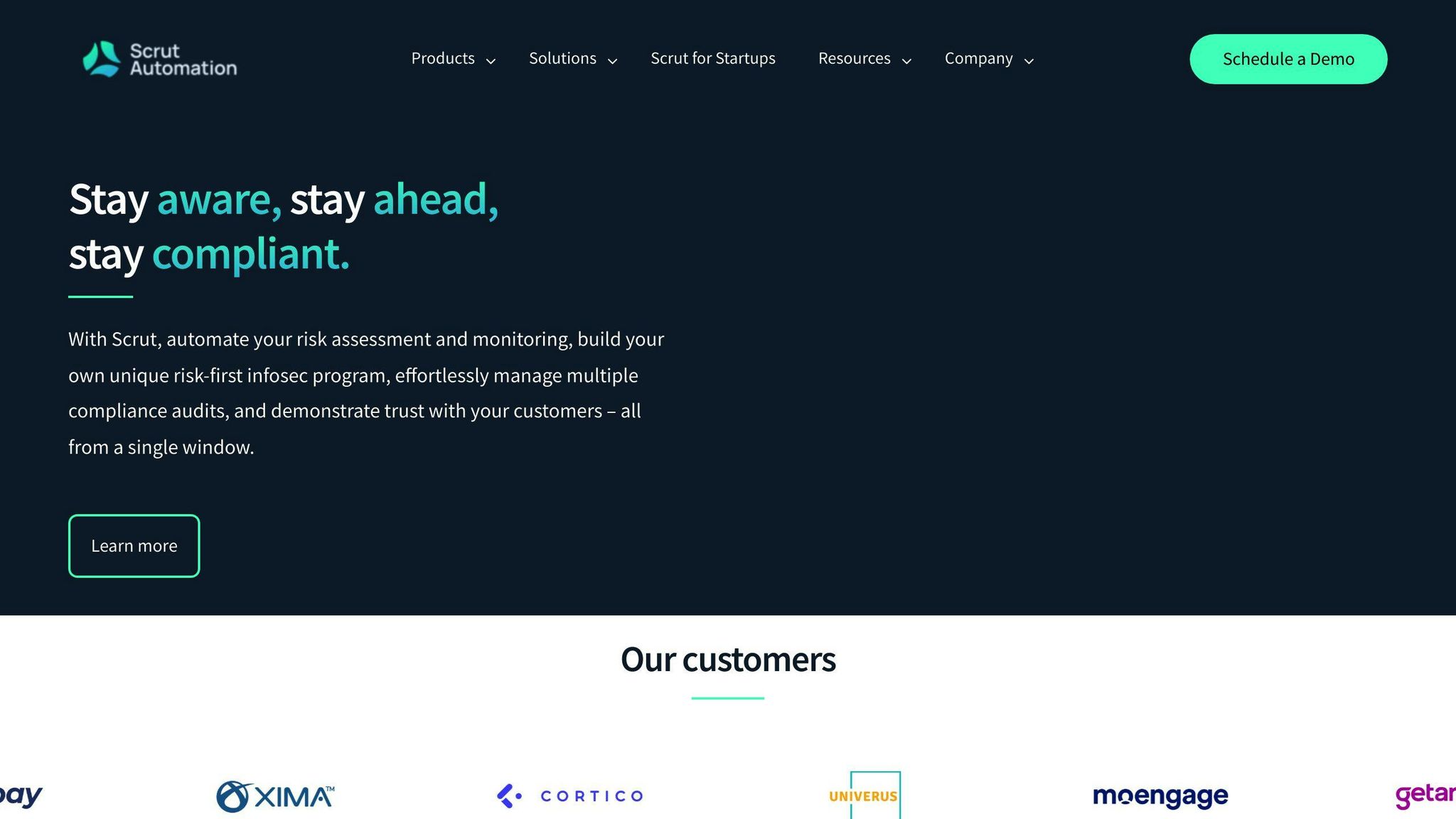AI Ecommerce Compliance: Essential Guide 2024
Navigating AI compliance in ecommerce is crucial to avoid legal issues, maintain customer trust, and stay ahead of competitors. This guide provides a clear understanding of AI compliance principles and best practices for ecommerce businesses.
Key Principles of AI Compliance
| Principle | Description |
|---|---|
| Transparency | Enables understanding of how AI systems make decisions |
| Explainability | Provides clear explanations of AI-driven decisions |
| Accountability | Ensures responsibility for AI system actions |
Benefits of AI Compliance
| Benefit | Description |
|---|---|
| Risk Reduction | Identify and address potential AI system risks |
| Increased Trust | Increase consumer confidence in the business |
| Global Market Access | Demonstrate ethical AI practices to customers |
| Innovation | Foster development of fair, secure AI systems |
Overcoming AI Compliance Challenges
- Organizational Culture: Foster transparency, accountability mindset
- Talent: Hire AI compliance experts, upskill employees
- Third-Party Collaborations: Evaluate vendors, establish contractual agreements
AI Compliance Framework
- Stay updated on AI regulations
- Conduct AI ethics assessments
- Ensure transparency in AI decisions
- Address AI bias and fairness
- Adopt data governance policies
- Implement human oversight
- Enforce security protocols
- Document AI systems
- Train employees on AI compliance
- Engage with stakeholders
- Monitor and update continuously
AI Compliance Tools
- Applitools: Automated scanning and testing
- deepset Cloud: AI-powered data governance
- Scrut Automation: Risk analysis and compliance
By prioritizing AI compliance, ecommerce businesses can ensure sustainable growth, mitigate risks, increase customer trust, and drive innovation in the digital economy.
Related video from YouTube
Understanding AI Compliance for Ecommerce
AI compliance for ecommerce is built on three key principles: transparency, explainability, and accountability. These principles ensure that AI systems are designed and deployed in a way that is fair, secure, and respectful of consumer rights.
Key Principles of AI Compliance
| Principle | Description |
|---|---|
| Transparency | Enables businesses to understand how AI systems make decisions and take actions. |
| Explainability | Provides clear explanations of AI-driven decisions and actions. |
| Accountability | Ensures businesses are responsible for the actions of their AI systems. |
Transparency in AI Compliance
Transparency is critical in AI compliance. It helps businesses understand how AI systems make decisions and take actions. This includes providing clear explanations of AI-driven processes and ensuring that consumers are informed about the use of AI in their interactions with the business. Transparency also helps businesses identify and address biases in AI systems, reducing the risk of unfair outcomes.
Explainability in AI Compliance
Explainability is closely related to transparency. It involves providing clear explanations of AI-driven decisions and actions. This includes developing AI systems that can provide insights into their decision-making processes, enabling businesses to understand how they arrive at certain conclusions. Explainability is essential in building trust with consumers and ensuring that AI systems are fair and unbiased.
Accountability in AI Compliance
Accountability is a critical component of AI compliance. It ensures that businesses are responsible for the actions of their AI systems. This includes implementing measures to prevent harm, protecting consumer data, and ensuring that AI systems are aligned with ethical values. Accountability also involves establishing clear lines of responsibility and ensuring that businesses are transparent about their use of AI.
By understanding these key principles, businesses can navigate the complex landscape of AI compliance and ensure that they are providing a fair and secure online shopping experience for their customers.
Benefits of AI Compliance
Implementing AI compliance in ecommerce businesses can bring several advantages. By ensuring transparency, explainability, and accountability in AI systems, businesses can reduce risks, increase consumer trust, access global markets, and foster innovation.
Risk Reduction
AI compliance helps businesses identify and address potential risks associated with AI systems, such as biases and security breaches. By implementing measures to prevent these risks, businesses can avoid reputational damage, legal liabilities, and financial losses.
Increased Consumer Trust
Transparency and explainability in AI systems can increase consumer trust and confidence in ecommerce businesses. When consumers understand how AI systems make decisions and take actions, they are more likely to feel comfortable sharing their personal data and engaging with the business.
Access to Global Markets
AI compliance can provide businesses with a competitive advantage in global markets. By demonstrating a commitment to ethical and responsible AI practices, businesses can differentiate themselves from competitors and attract customers who value transparency and accountability.
Innovation
AI compliance can foster innovation by encouraging businesses to develop AI systems that are fair, secure, and transparent. By establishing clear guidelines and standards for AI development, businesses can create an environment that promotes responsible innovation and growth.
Benefits of AI Compliance
| Benefit | Description |
|---|---|
| Risk Reduction | Identify and address potential risks associated with AI systems. |
| Increased Consumer Trust | Increase consumer trust and confidence in ecommerce businesses. |
| Access to Global Markets | Demonstrate a commitment to ethical and responsible AI practices. |
| Innovation | Foster innovation by encouraging businesses to develop fair, secure, and transparent AI systems. |
By prioritizing AI compliance, ecommerce businesses can reap these benefits and create a competitive advantage in the market.
sbb-itb-be22d9e
Overcoming AI Compliance Challenges
Achieving AI compliance in ecommerce can be difficult. Organizations must address various challenges to ensure they meet regulatory requirements. Here are some common obstacles and strategies to overcome them:
Organizational Culture and Mindset
To achieve AI compliance, organizations need a cultural shift. Leaders must prioritize ethical AI practices and foster a mindset of transparency and accountability.
| Strategy | Description |
|---|---|
| Executive Buy-In | Educate top leadership on the benefits of AI compliance and its long-term impact on the business. |
| Employee Training | Implement comprehensive training programs to educate employees on AI ethics, compliance regulations, and best practices. |
| Incentives and Accountability | Establish incentives for employees to prioritize AI compliance and hold them accountable for upholding ethical standards. |
Lack of Specialized Talent
Developing and maintaining compliant AI systems requires a skilled workforce with expertise in AI ethics, data governance, and regulatory frameworks.
| Strategy | Description |
|---|---|
| Hiring and Upskilling | Recruit professionals with AI compliance expertise and provide ongoing training to upskill existing employees. |
| Partnering with Experts | Collaborate with AI ethics consultants, legal professionals, and industry associations to access specialized knowledge and resources. |
| Fostering Internal Expertise | Encourage knowledge sharing and mentorship programs to cultivate AI compliance expertise within the organization. |
Harmonizing Third-Party Collaborations
Ecommerce businesses often rely on third-party AI solutions and data sources, which can introduce compliance risks.
| Strategy | Description |
|---|---|
| Vendor Due Diligence | Evaluate the AI compliance practices of third-party vendors and ensure alignment with internal standards. |
| Contractual Agreements | Establish clear contractual agreements that outline AI compliance requirements and responsibilities for all parties involved. |
| Continuous Monitoring | Implement processes to monitor third-party AI systems and data sources for compliance on an ongoing basis. |
By addressing these challenges, ecommerce businesses can establish robust AI compliance frameworks, fostering trust, mitigating risks, and driving responsible innovation.
AI Compliance Framework: Step-by-Step Guide
To ensure ecommerce businesses comply with AI regulations, a structured approach is essential. This step-by-step guide outlines key aspects of AI compliance, from staying updated on regulations to implementing human oversight.
Stay Updated on AI Regulations
Stay current with global AI regulations to avoid legal issues. Establish processes for ongoing legal awareness, such as:
- Monitoring regulatory updates and amendments
- Participating in industry forums and conferences
- Collaborating with legal experts and AI ethics consultants
Conduct AI Ethics Assessments
Conduct impact assessments to evaluate ethical considerations and potential biases in AI ecommerce systems. This includes:
| Assessment Step | Description |
|---|---|
| Identify Risks | Identify potential risks and biases in AI decision-making |
| Evaluate Impact | Evaluate the impact of AI on customers and stakeholders |
| Develop Strategies | Develop strategies to mitigate risks and biases |
Ensure AI Transparency
Ecommerce platforms must achieve and maintain transparency in AI operations. This enables customers and regulators to understand algorithmic decision-making. Practical steps include:
| Transparency Step | Description |
|---|---|
| Explain AI Decisions | Provide clear explanations of AI decision-making processes |
| Offer Transparency | Offer transparency into AI-driven product recommendations |
| Ensure Accountability | Ensure accountability for AI-driven decisions |
Address AI Bias and Fairness
Strategies to identify and correct biases in AI algorithms are essential to ensure fair treatment across all customer interactions. This includes:
| Bias Correction Step | Description |
|---|---|
| Implement Bias Detection | Implement bias detection and correction mechanisms |
| Ensure Diverse Data | Ensure diverse and representative training data |
| Regularly Audit AI | Regularly audit AI systems for bias and fairness |
Adopt Data Governance Policies
Developing and enforcing robust data governance policies and mechanisms assures data quality and compliance. This includes:
| Data Governance Step | Description |
|---|---|
| Establish Data Management | Establish clear data management procedures |
| Ensure Data Accuracy | Ensure data accuracy and integrity |
| Implement Data Protection | Implement data protection measures |
Implement Human Oversight
Human supervision is essential in the AI ecommerce ecosystem, ensuring accountability and ethical practices. This includes:
| Human Oversight Step | Description |
|---|---|
| Establish Human Oversight | Establish human oversight mechanisms for AI decision-making |
| Ensure Human Intervention | Ensure human intervention in AI-driven processes |
| Implement Accountability | Implement accountability measures for AI-driven decisions |
Enforce Security Protocols
Robust security protocols protect customer data and comply with regulations such as GDPR and CCPA. This includes:
| Security Protocol Step | Description |
|---|---|
| Implement Encryption | Implement encryption and access controls |
| Conduct Regular Audits | Conduct regular security audits and penetration testing |
| Ensure Compliance | Ensure compliance with data protection regulations |
Document AI Systems
Thorough documentation and regular auditing of AI systems are necessary for transparency and compliance. This includes:
| Documentation Step | Description |
|---|---|
| Maintain Records | Maintain detailed records of AI system development and deployment |
| Conduct Regular Audits | Conduct regular audits of AI systems |
| Ensure Accessibility | Ensure documentation is accessible and understandable |
Train Employees on AI Compliance
Training employees on compliance processes and AI ethics fosters a culture of responsibility. This includes:
| Training Step | Description |
|---|---|
| Provide Comprehensive Training | Provide comprehensive training on AI compliance regulations |
| Ensure Employee Understanding | Ensure employees understand AI ethics and biases |
| Encourage Reporting | Encourage employee reporting of AI compliance concerns |
Engage with Stakeholders
Collaboration with stakeholders, including regulatory bodies, is essential to navigate the nuanced ecommerce AI landscape effectively. This includes:
| Stakeholder Engagement Step | Description |
|---|---|
| Engage with Regulatory Bodies | Engage with regulatory bodies and industry associations |
| Participate in AI Ethics Forums | Participate in AI ethics forums and conferences |
| Collaborate with Experts | Collaborate with AI ethics consultants and experts |
Monitor and Update Continuously
Continuous monitoring systems and processes for iterative updates in response to changing regulations and technological advancements are crucial. This includes:
| Monitoring Step | Description |
|---|---|
| Establish Monitoring Systems | Establish monitoring systems for AI compliance regulations |
| Conduct Regular Updates | Conduct regular updates and refinements of AI systems |
| Ensure Ongoing Training | Ensure ongoing training and education on AI compliance and ethics |
AI Compliance Tools for Ecommerce
AI compliance tools play a crucial role in ensuring ecommerce businesses adhere to regulatory requirements. These tools help navigate the complex world of AI-driven ecommerce, providing features for automated scanning, data governance, and risk analysis.
AI Compliance Tools Overview
The following AI compliance tools are essential for ecommerce businesses:
| Tool | Description |
|---|---|
| Applitools | Automated scanning and testing platform for identifying potential issues and ensuring compliance |
| deepset Cloud | AI-powered data governance and risk analysis platform for ensuring data quality and compliance |
| Scrut Automation | AI-powered compliance platform for identifying and mitigating risks |
Applitools: Automated Scanning and Testing

Applitools is an AI-powered testing and monitoring platform that helps ecommerce businesses ensure compliance with regulatory requirements. Its automated scanning and testing capabilities identify potential issues, enabling businesses to take corrective action before they become major problems.
deepset Cloud: AI-Powered Data Governance

deepset Cloud is a cloud-based AI platform that provides data governance and risk analysis capabilities for ecommerce businesses. Its AI-powered engine analyzes large datasets, identifying potential risks and ensuring data quality and compliance.
Scrut Automation: Risk Analysis and Compliance

Scrut Automation is an AI-powered compliance platform that helps ecommerce businesses identify and mitigate risks. Its risk analysis capabilities analyze business processes, identifying potential areas of non-compliance and providing recommendations for improvement.
These AI compliance tools are vital for ecommerce businesses seeking to maintain regulatory adherence in the AI-driven ecommerce landscape. By leveraging these tools, businesses can ensure compliance, mitigate risks, and improve overall operational efficiency.
Conclusion: Prioritizing AI Compliance
In today's ecommerce landscape, AI compliance is crucial for businesses to thrive. As AI-driven ecommerce grows, prioritizing AI compliance helps businesses avoid reputational damage, legal consequences, and financial losses associated with non-compliance.
Why AI Compliance Matters
By prioritizing AI compliance, businesses can:
- Ensure sustainable growth
- Mitigate risks
- Stay ahead of the competition
- Increase customer trust and loyalty
Key Takeaways
To future-proof their businesses, ecommerce companies must:
| Action | Description |
|---|---|
| Invest in AI compliance tools | Ensure AI systems are transparent, fair, and unbiased |
| Adopt AI compliance frameworks | Navigate the complex regulatory landscape |
| Develop AI compliance strategies | Unlock new opportunities and drive innovation |
In conclusion, prioritizing AI compliance is essential for ecommerce businesses seeking to succeed in today's digital economy. By embracing AI compliance, businesses can build a strong foundation for long-term success.
Add a New Sales Channel
- • Digital downloads
- • Courses & tutorials
- • Visual & audio assets
- • Game credits or licenses
- • Private memberships

